List of National ParksMeaning of National ParkNational parks are the restricted area or protected areas under the government's control and have been constituted to conserve different types of wildlife. A place is declared a National Park under the section Wildlife Life (Protection) Act of 1972. The first National Park of India was set up during the colonial rule in 1972; it was named Hailey National Park, but later it was changed to Jim Corbett National Park. Currently, only two countries, Australia and Mexico, have more national parks than India; India has around 116 national parks. 1. Anamudi Shola National Park, Kerala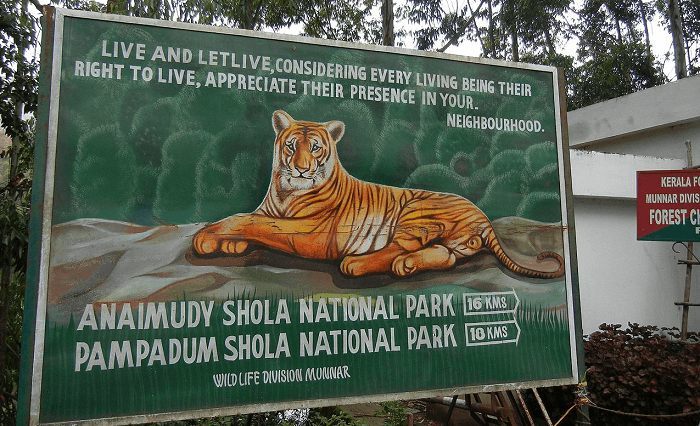
Anamudi Shola National Park is spread over 7.5 square kilometres. The Park is made up of Mannavanshola, Idavarashola, and Pullardishola. It is considered one of the most beautiful places to visit in the Idukki district of Karnataka. The Park is surrounded by many other National parks and sanctuaries like Pampadum and Mathiketan Shola National park and Chinnar Wildlife Sanctuary. Flora Fauna Here you can see over 174 types of different Herbs and Shrubs, 62 different species of trees, and also 40 different types of Climber Species from which most are endemic. Anamudi national park has rich and varied biodiversity; the reason behind these it's climate and perennial water sources. 2. Bandhavgarh National Park, Madhya Pradesh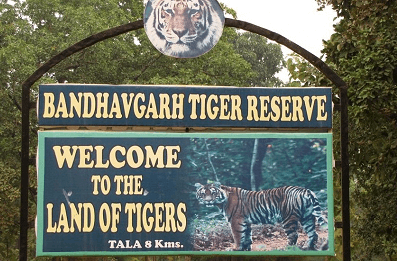
Bandhavgarh National Park is in the central part of the country, and it is spread in the area of the Vindhya Hills of Madhya Pradesh. It was declared a national park in the year 1968. The area covered by this national Park is around 400 sq km, including Steep ridges, forest, and open meadows. The National Park has the highest breeding population of tigers and leopards compared to any other place. It is most famous for its Royal Bengal Tiger and Leopard. Every year, many tourists from all around the world come here to visit these places. The park area is divided into three sections named Tala, Magdi, and Camera. The most famous is Tala Zone, as it offers tiger sightings opportunities. Magdi Zone is famous for its Elephant show organized by Bandhavgarh National Park authorities. 3. Gir Forest National Park, Gujarat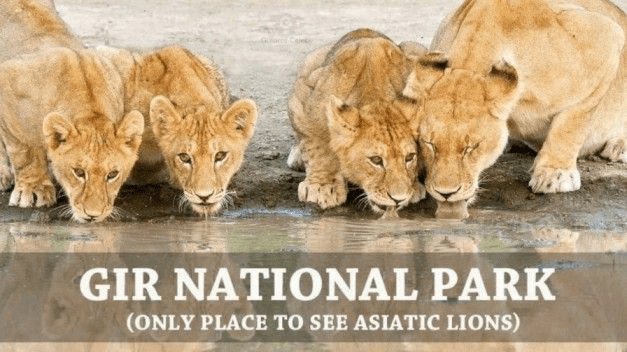
Gir Forest National Park is among India's most famous national parks, and it is the only place after Africa where you can see lions roaming in the wild. It is located 65 km away from the Junagarh district of Gujarat. It was declared a national park on 18th September 1965 by the Nawabs of Junagarh and the reason behind this is; to provide protection and conservation to Asiatic lions. The National Park is spread over an area of 1415 Square kilometres and is adjoining to Khathiar-Gir dry deciduous forests. Gir National Park is among the biggest animal sanctuary in India, and it is also named Sasan Gir. Flora According to the census done in 2006, there are over 500 different plant species in Gir national park, and with time numbers are increasing. The forest is also one of the best places for biological research and is the major source of income for the local government. Every year they make an income of around 10 million Dollars by selling green grass and woods for fuel. Fauna Talking about fauna species in the Gir National Park currently, there are around 38 distinct species of mammals, over 300 birds, and 3000 species of insects. The biggest among all animals are carnivores like Asiatic Lion, Leopard, Hyna, Asiatic wildcats, and many others. The herbivores category includes chital, nilgai, sambar, blackbuck, etc. It is also famous for the reptiles like the mugger crocodile, Indian cobra, tortoise, and monitor lizard. In the past few years, due to the continuous and effective government efforts, the counting of Asiatic Lion increased from 400 hundred to 650. Currently, the population of lions in Gir national park is around 600, of which 120 are male, 235 are female, and 245 are sub-adult lions. 4. Indira Gandhi Sanctuary and National Park, Tamil Nadu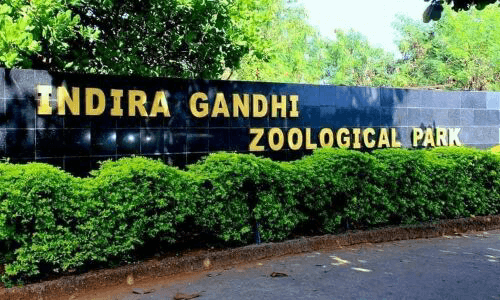
Anamalai Tiger Reserve, commonly known as Indira Gandhi Sanctuary and National Park, is the biggest contributor to a watershed for power supply and agricultural economy for the various parts of the state of Tamil Nadu. The National Park houses various endangered animal species like brown mongoose, sambar deer, and Indian leopards. It is also famous for conserving 250 different bird varieties, which are kept in a special safe environment. The National Park is spread over 958 sq kilometres and is said to be Ecological Heaven. Fauna There are various types of fauna which you can see here. The most common among all are Elephant, Porcupine, Whiskered Bulbul, Panther, Gaur, Tiger, Deer, and many more. It also has a reservoir named Amaravati Reservoir. Here you can see a large number of crocodiles. 5. Jim Corbett National Park, Uttarakhand
Jim Corbett is among India's most famous and exciting safari destinations; every year, thousands of national and international come here to enjoy the destination. Jim Corbett is the first National Park of India, and it has covered an area of over 523 sq. kilometres. The Park is most famous for its rare species Of Flora, birds, reptiles, and wild animals. There are around 488 different types of plants you can see here, along with Jim Corbett national park is home to over 550 birds type, 25 reptile categories, and 50 types of mammals. 6. Kaziranga National Park, Assam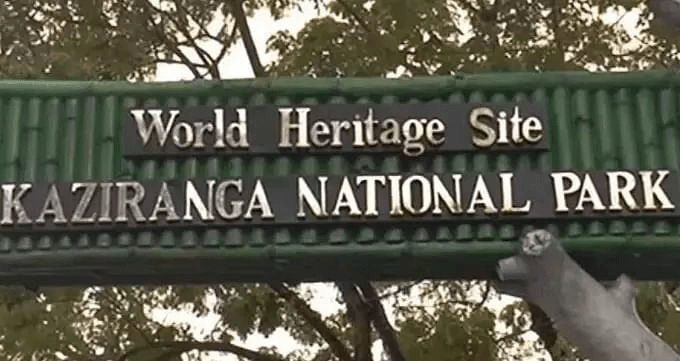
Kaziranga is home to the world-famous one-horned Rhinos; Kaziranga national park is the only place you can see them. Kaziranga National Park has spread over 450 sq km and is covered with elephant-grass meadows, swampy lagoons, and dense forests. Currently, the total population of one-horned rhine is around 2200, which is approximately 2/3rd of the total world population of rhinos. The Park was formed in 1908 on the suggestions of Mary Curzon. Later, in 1985, it was declared a World Heritage Site by UNESCO. Along with the rhinos, Kaziranga national park is home to many other animals like elephants, wild water buffalo, swamp deer, and tigers. Due to the increasing tiger population in recent years, in 2006, it was renamed Kaziranga Tiger Reserve. 7. Sanjay Gandhi National Park, Maharashtra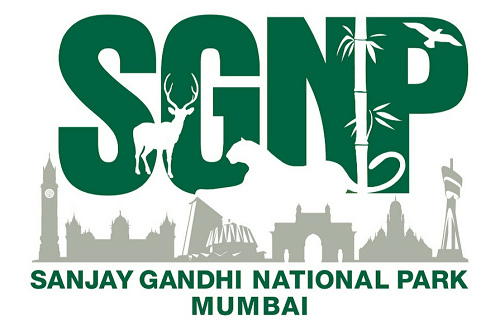
Sanjay Gandhi National Park was established in 1969, and it was previously named 'Krishnagiri Park' in 1947. At that time, the total area covered by the Park was around 20 sq km. Later in 1948, it was renamed 'Borivali National Park' between 1947 to 1990. In 1969 the total park area was increased to 104 sq km by combining all the adjoining reserves. Every year over 2 million visitors come to visit Sanjay Gandhi national park. 8. Tadoba Andheri National Park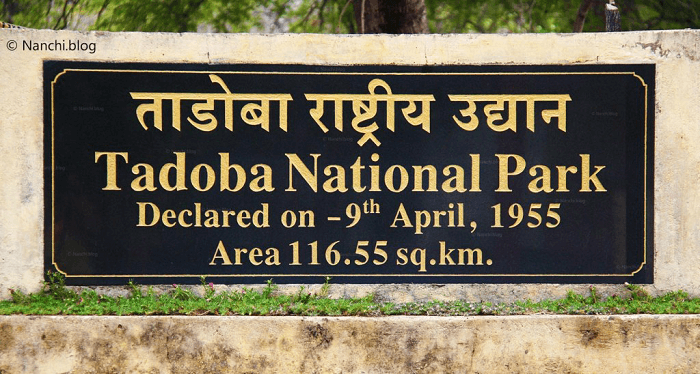
Tadoba National park is the first and biggest National Park in Maharashtra. It was built in 1955 and is only 45 km away from Chandrapur district, covering around 600 square kilometres, from which 35 kilometres of land is restricted to local peoples. The reason behind naming the Park Tadoba is the local tribe, the god they worship called Tadoba or Turi along with that Andheri is the name of the river that flows through the forest. Flora It is a dry deciduous forest covered with dense woodlands, and Trek is one of the dominant tree species, along with ain (crocodile bark), bija, dhauda, hald, salai, email, and tendu. It is also famous for Beria, used as an insect repellent. Fauna Tadoba is most famous for its Tigers. Currently, there are around 85 tigers on reserve. There are 195 kinds of bird species, such as the orange-headed thrush, Indian pitta, crested treeswift, stone curlew, crested honey buzzard, and paradise flycatcher. Also, there are many other mammals like Sloth Bears, Gaur, leopards, and many more. 9. Madhav National Park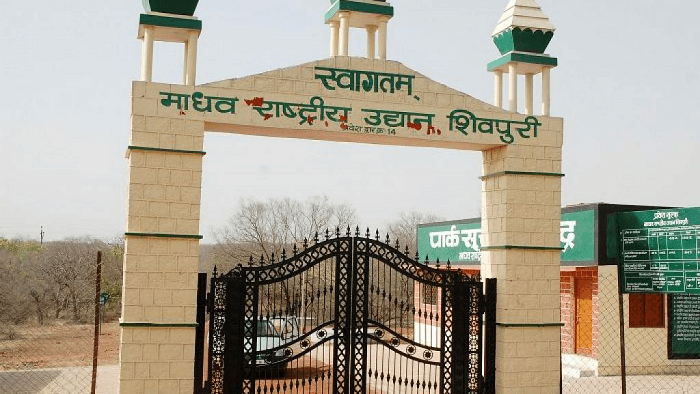
Madhav National Park is among the smallest national parks in India; the total area covered by the Park is around 167 square kilometres. At first, it was known as Shivpuri National Park, but in 1958 it was renamed Madhav National Park; Madhav Rao Scindia was the king of Gwalior at that time. Geographical description There are several ponds in the Park, and the biggest is Sankhya Sagar. It is a water reservoir built on Madhav Rao's orders. In the past, it was used by the Scindia kings for hunting. 10. Nanda Devi National Park, Uttarakhand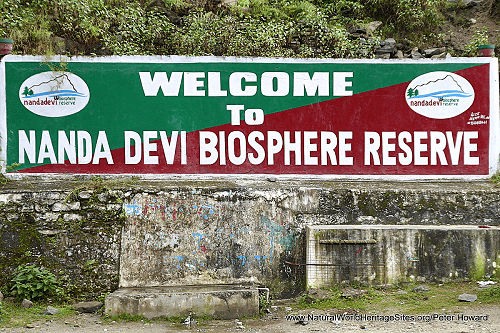
Nanda Devi National Park is a beautiful gift of mother nature, and it is a beautiful expanse of wilderness on the heights of the Himalayas. It was declared a World Heritage Site by UNESCO. The park is located under the shadows of Nanda Devi Peak, spread around three districts of Uttarakhand, including Chamoli, Pithoragarh, and Bageshwar. It covers a vast area of 6.407 square kilometres. Several rivers flow from its forest. Most of them are the tributaries of Ganga, which are Rishi Ganga, Dhauli Ganga, Pushwapati, and Khiro Ganga. Nanda Devi national park is home to various globally threatened species like snow leopard, the Himalayan musk deer, and various plants species. Here you can also easily see the Asiatic Black bear, The Himalayan Brown bear, tahr, and bharal. Most of the reserve parts are restricted to visit and are only accessible through permission of local authorities.
Next TopicList of Viral Diseases in Humans
|
 For Videos Join Our Youtube Channel: Join Now
For Videos Join Our Youtube Channel: Join Now
Feedback
- Send your Feedback to [email protected]
Help Others, Please Share










